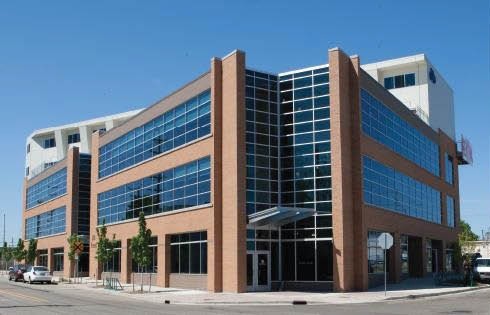Johnson Center report cites uptick in nonprofit and foundation engagement

Courtesy / GVSU.edu
Jan 28, 2019
As the new year begins, Grand Valley State University’s Johnson Center for Philanthropy released a report regarding recent philanthropy trends to watch for in 2019. Topics range from the increasing role of foundations and nonprofits in civic engagement to issues raised from the collection and implementation of “big data” within the nonprofit sector.
Frey Foundation Chair for Family Philanthropy Michael Moody said he sees a continuing trend in giving within the area, as established foundations within west Michigan remain committed to investing in institutions and programs that improve the lives of residents across the region.
“The major philanthropic families and foundations have made clear commitments to continuing to focus their giving in this area, and to working together for the collective good of the community,” Moody said.
“These commitments will continue even as the next generation take over the governance of those foundations. Even then the goals of their giving have been mostly similar to the goals of the previous generation — like supporting major community institutions, supporting education and youth at-risk, becoming a national leader in health care, protecting and restoring lakes and rivers and so on.”
The goals of many foundations and nonprofits are changing as well as the region faces new challenges. As the Grand Rapids region continues to grow, addressing issues such as housing shortages and displacement, homelessness and food security among low-income families becomes increasingly important.
Director of Communications and Engagement Tory Martin said that these issues will prompt nonprofits and local governments to take action to mitigate these problems.
“Grand Rapids as a city and as a metro region is experiencing a decided growth spurt,” Martin said.
“In many ways, that’s cause for celebration, but it’s also pushing new kinds of social and economic justice issues to the forefront of regional attention — things like affordable housing and homelessness, gentrification and cost of living. The philanthropic ecosystem in our region is likely to evolve to meet the needs that are associated with growth — we’ll see new nonprofits; new partnerships; new collaborations among philanthropy, business and government to try to address these concerns.”
The report also highlighted an increasing trend toward civic engagement and the coalescing of nonprofits, foundations and local governments to make their communities more attractive.
As cities and employers vie for educated workforces, a focus on improving both the business environment as well as the living conditions of residents is becoming increasingly important. Moody states this shift is influenced by the employment trends for Millennials, as people desire to work for environmentally-responsible companies that invest in their cities and towns.
“Millennials, we know, expect the companies they work for, and whose products and services they buy, to be clearly socially and environmentally responsible,” Moody said.
“This is a huge incentive for those companies to change their practices, and this will mean more and more companies in a region like this — one that wants to attract and retain young people — will be looking for ways to get engaged in the community and to give their money and their employees time and talent. If we can direct this in the right ways, it could be a boon for lots of local causes and problems that need more attention and support.”
Martin states that while nonprofits and foundations become more invested in their communities, many seek to influence the distribution of power at the federal level. Gathering information for the 2020 Census is underway and ensuring an accurate count is imperative, especially for a state such as Michigan that’s lost representation in Congress due to population decline.
“I can say that a lot of nonprofits around the country and around Michigan are gearing up for the 2020 Census and taking a hard look at their role in ensuring an accurate count in our state,” Martin said. “Michigan was the only state in the Union in 2010 to decline in population — which meant we lost a seat in the House of Representatives. A coalition led by the Michigan Nonprofit Association — BeCountedMI2020 — is working with nonprofits to get them the resources and information they need to support high response rates in their communities.”
Although this report often focuses on national trends, it’s especially applicable within the Grand Rapids region as nonprofits and foundations continue to work in juncture with local governments to create both a business-friendly and desirable place to live. The report illustrates an ever-changing environment for philanthropies and nonprofits, emphasizing the increasing importance and often power some of these entities have, as they work to address issues pertinent within the region.






















